
This article a follow up on the previous post about my last decade’s reading statistic.
I decided to break the book recommendation post into three sections because it has grown too long. The three parts are non-fiction (this post), fiction, and biographies.
These are the books that I believe have significantly affected me and changed my life for the better.
Sorted in no particular order. However, If you only have time to read one book in that category, pick the top.
Philosophy
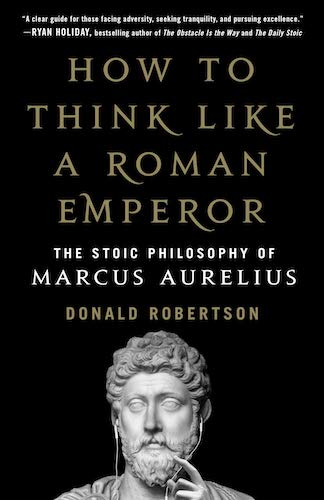
How to Think Like a Roman Emperor: The Stoic Philosophy of Marcus Aurelius by Donald J. Robertson is the best step by step guide to Stoicism that I’ve ever read. If we all could learn to not over-react to adversity, there would be much fewer wars and suffering. This book is essentially a modernized form of Meditations by Marcus Aurelius. I plan to reread these two books again and again.
Free Will and The Moral Landscape: How Science Can Determine Human Values by Sam Harris heavily influenced how I view decision making and definitely improved my empathy. If free will is indeed an illusion, then how do we improve our lives and those we love? Without free will, those who made sub-par decisions don’t really have a choice. Next time when someone did something you think stupid, try to imagine that if you were born and raised in their exact environment and family, you would most certainly make the same decision that you considered stupid before.
Waking Up: A Guide to Spirituality Without Religion by Sam Harris and In Love with the World: A Monk’s Journey Through the Bardos of Living and Dying by Yongey Mingyur Rinpoche showed me the benefits & practicality of meditation. It is a wonder that the majority of the world’s population live their lives without ever thinking about how their mind works. Mindfulness meditation is surprisingly easy to learn and really helps you to understand what actually happens in your consciousness.
A Manual for Creating Atheists by Peter Boghossian gets an honorable mention here. The book taught me about the Socratic method and its application. You don’t have to go out and try to deconvert everyone you met. Just knowing the technique is absolutely beneficial, since you can apply the same principle to your beliefs to find out which ones should be dropped or kept.
Zen and the Art of Motorcycle Maintenance: An Inquiry Into Values by Robert M. Pirsig is a weird & polarizing book. It asks a lot of abstract questions like “What is quality?” and that makes people uncomfortable. However, if you do enjoy learning philosophy, this book would be a good step out of your comfort zone.
Sciences
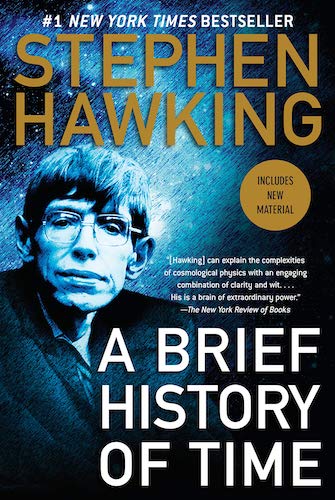
A Brief History of Time by Stephen Hawking is a fun little book. I believe this is a must-read for everybody to learn about our home and the basics of how it works.
The Design of Everyday Things by Donald A. Norman showed me the hidden world of design. Steve Jobs would have probably recommended this book as well. You will learn about the designs of the objects you interact with every day and why it is so.
Communication & Negotiation
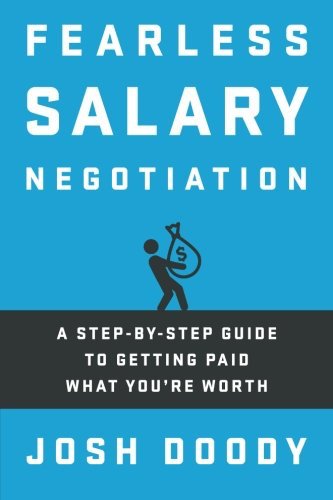
Fearless Salary Negotiation: A step-by-step guide to getting paid what you’re worth by Josh Doody taught me how to negotiate and gave me the confidence actually to do it in high stakes salary negotiation. This book would directly make you more money than the others.
Never Split the Difference: Negotiating As If Your Life Depended On It by Chris Voss is another great negotiation book that isn’t just about salary.
Non Violent Communication by Marshall B. Rosenberg will save & improve your relationship with others. We should all learn to communicate without causing further enmity.
The Game: Penetrating the Secret Society of Pickup Artists by Neil Strauss tells an amazing tale of a shy journalist’s journey in the world of people who specialized in pick-up, which really is just communication and negotiation. If you are the type of person who thinks that the pick-up community is toxic, just try to imagine this as an anthropology book where an Alien came to earth to learn about homo sapiens’ mating behavior. After all, pick-ups are just communications.
Anthropology & History
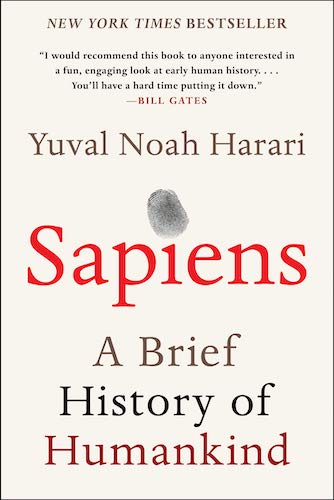
Sapiens: A Brief History of Humankind, Homo Deus: A History of Tomorrow & 21 Lessons for the 21st Century by Yuval Noah Harari is a must-read trilogy. He went into great detail of our species’ past, present and future. Sapiens talks about our species’ history, Homo Deus predicts our future, and the 21 Lessons combines them both to help us prepare.
Guns, Germs, and Steel: The Fates of Human Societies by Jared Diamond has a similar tone to Harrari’s but focuses more on why some nation advances quicker than others. This will probably help to dispel the notion that some race’s skin color made certain people superior to others. The biggest difference-maker is really luck that has been compounded over generations.
Scale: The Universal Laws of Growth, Innovation, Sustainability, and the Pace of Life in Organisms, Cities, Economies, and Companies by Geoffrey B. West will blow your mind. Everything is a system, and each system scales according to a set of power laws. Once you have learned this concept, a lot of things will make more sense. This is a must-read for everyone who works with any kind of system.
Enlightenment Now: The Case for Reason, Science, Humanism, and Progress by Steven Pinker tells the story that despite the bad news every day, our society is actually progressing positively at a rapid rate. Pinker presents his view with a plethora of charts and data.
Parenting
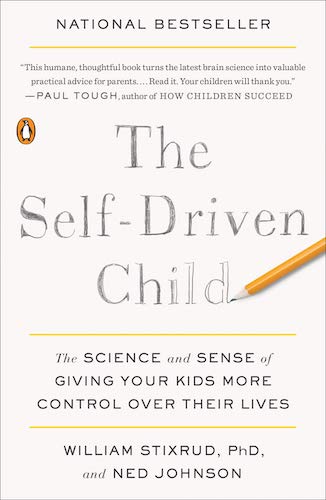
The Self-Driven Child: The Science and Sense of Giving Your Kids More Control Over Their Lives by William Stixrud and The Vanishing American Adult: Our Coming-of-Age Crisis—and How to Rebuild a Culture of Self-Reliance by Ben Sasse shows a better way to raise our kids in today’s age. We shouldn’t coddle our children and protect them from failure. Instead, we should let them fail early and often to assist learning. Despite lowering crime and kidnapping rates, parents nowadays are ever more afraid to let their children play by themselves. I certainly plan to give my kids control more of their own lives more.
How to Talk So Kids Will Listen & Listen So Kids Will Talk by Adele Faber will teach you how to communicate better not just to your kids but also to other adults.
Software Engineering
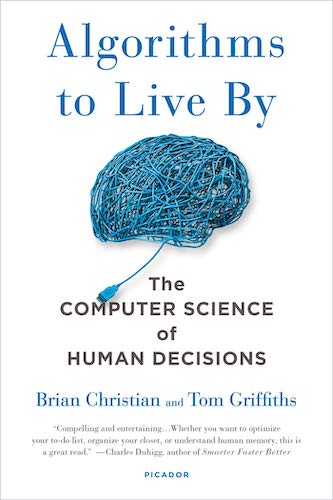
Algorithms to Live By: The Computer Science of Human Decisions by Brian Christian shows you how learning the basics of algorithms can help you make decisions in day to day life. I highly recommend this to both technical and non-tech people alike. Learn about the theory of ‘explore’ vs. ‘exploit’ and caching with many real-life examples.
Cracking the Coding Interview: 150 Programming Questions and Solutions by Gayle Laakmann McDowell helped me to get my current job in Silicon Valley. If you want to play the game, you got to learn the rules. This book is the best guide to get a tech job. The tech interview is often viewed as broken, but all the top companies still do it. It is so bad that even if you work with a complex system every day, you will always have to study for interviews. I do hope this trend changes.
RxSwift: Reactive Programming with Swift by Florent Pillet will teach you Functional Reactive Programming (FRP) for iOS. Once you grok FRP, you won’t want to use the old callback pattern anymore.
The Mythical Man-Month: Essays on Software Engineering by Frederick P. Brooks Jr. will show you the pain and suffering of scheduling and running software projects. This is a classic and required reading for project managers.
Leadership
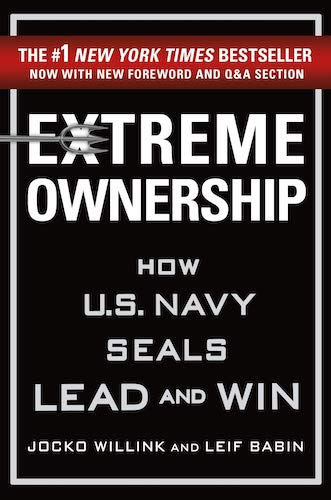
Extreme Ownership: How U.S. Navy Seals Lead and Win by Jocko Willink is a brilliant book. Plenty of Navy Seals war stories juxtaposed with business scenarios. A mission or project can only be successful if someone takes extreme ownership. This is a highly recommended book for anyone who leads other people.
The Dichotomy of Leadership: Balancing the Challenges of Extreme Ownership to Lead and Win by Jocko Willink is a followup book that answers the questions of ‘how much is too extreme?’. You should only read this after reading the first one.
Radical Candor: Be a Kickass Boss Without Losing Your Humanity by Kim Malone Scott is a refreshing take on leadership without any bullshit. Just try to be honest and communicate more without being an asshole.
The Manager’s Path: A Guide for Tech Leaders Navigating Growth and Change by Camille Fournier is a book specifically for the tech industry. Highly recommended for anyone who wanted to transition or found themselves transitioning from individual contributor to leadership roles.
Medical & Health
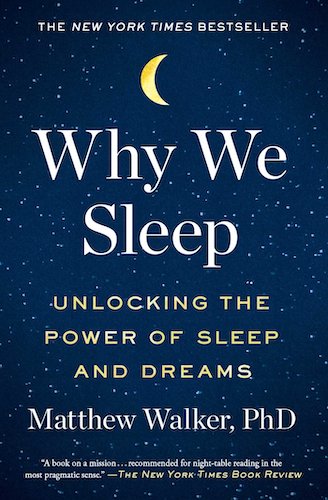
Why We Sleep: Unlocking the Power of Sleep and Dreams by Matthew Walker will convince you to prioritize sleep. You will learn the downsides of lack of sleep, the benefit of sleeping more, and the techniques to get better sleep (a.k.a. sleep hygiene).
Being Mortal: Medicine and What Matters in the End by Atul Gawande discusses our mortality and the sorry state of end-of-life treatments. We will all die sooner or later. How should we handle all this and plan properly?
The Emperor of All Maladies: A Biography of Cancer by Siddhartha Mukherjee will teach you about the history of cancer and how badly our doctors ignored data about the screw-ups. We have come a long way, and we might have a lot longer way to go.
How to Change Your Mind: What the New Science of Psychedelics Teaches Us About Consciousness, Dying, Addiction, Depression, and Transcendence by Michael Pollan is a must-read if you are interested in how psychedelics medicines might be beneficial to us. The classification of psychedelics as an illegal drug has virtually stopped all research for decades. Only now have scientists started to look into it again. I wouldn’t be surprised if we would all be taking LSD or magic mushrooms as treatment or preventions for mental ailments in ten years.
The Epigenetics Revolution by Nessa Carey is a must-read if you are interested in genetics but do not know what epigenetics is. Fundamentally, genes can be turned on and off depending on an individual’s environments. A highly engaging book filled with real-life scenarios.
The Selfish Gene by Richard Dawkins opened my eyes to the shocking reality that we are merely a carrier of our genes. So much of our lives, desires, and what makes us happy can be explained as proxies to further the gene’s agenda. Next time you see an attractive person on the internet or the street and feel that arousing sensation, you are just doing what your genes want you to do.
The Nature Fix: Why Nature Makes Us Happier, Healthier, and More Creative by Florence Williams tells us to live close to nature to be happier. If you live in places without trees, do try to fill your surroundings with live plants. Hospitals with plants apparently heal people faster. If all the building managers read this book, we will all probably be happier and healthier.
Behavioral Economics
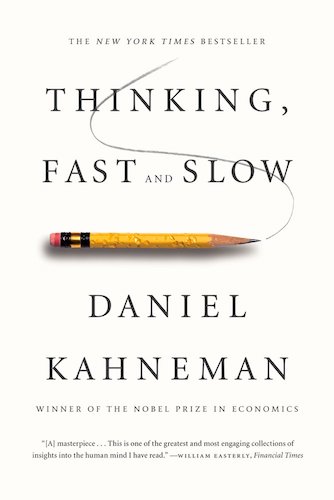
Thinking, Fast and Slow by Daniel Kahneman gave birth to the behavioral economics field. This is a must-read for everyone interested in how we make decisions and how we think. Why does 1+1 feel effortless while 36 x 7 feels effortful? It is because those are processed by the two different systems in your brain.
Predictably Irrational: The Hidden Forces That Shape Our Decisions by Dan Ariely cemented the concept that we are all predictably irrational. We probably know that we are sometimes irrational, but probably doesn’t yet understand that the irrationality can be predicted to a high degree of accuracy.
Scarcity: Why Having Too Little Means So Much by Sendhil Mullainathan shows that life is all about scarcity. You will look at debt, poverty, and public policy differently after reading this book.
Hooked: How to Build Habit-Forming Products by Nir Eyal revealed the strategy and techniques that companies use to hook people on their product. There are armies of people trying to get you hooked on their app or games right now, understanding the strategy would go a long way to defend against them.
Psychology & Self-Help
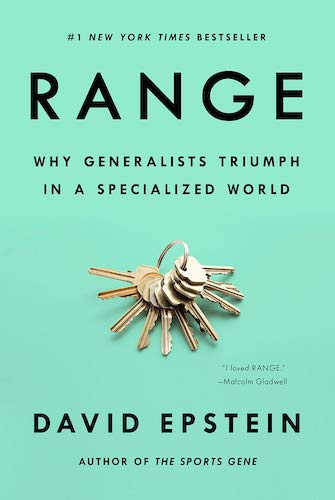
Range: Why Generalists Triumph in a Specialized World by David Epstein is probably my pick of the decade. This book provides a counterpoint to the plethora of other literature preaching the doctrine of specialization, such as Outliers by Malcolm Gladwell. The central thesis is that deliberate practice works really well for things that have unchanging rules e.g., playing the violin, but not optimal for inventing new things or finding connections between diverse domains of expertise. Read this. Love it or hate it, you won’t regret it. I’ve gifted this book to numerous people and always get a great review.
Peak: Secrets from the New Science of Expertise by K. Anders Ericsson and Grit by Angela Duckworth is very similar to Outliers mentioned above. They provide the view that specialization and perseverance is the key to the success of top performers. As I said above, this observation rings true for a lot of domains, but you might want to pair these books with Range to get a more complete understanding.
The Millionaire Fastlane: Crack the Code to Wealth and Live Rich for a Lifetime! by M.J. DeMarco provides a no-nonsense guide to getting rich. I like it because it doesn’t try to sell you new products or any pseudo-science. The fast lane really is just to find a way to increase your income significantly, then invest the money for early retirement.
Principles: Life and Work by Ray Dalio will show you the framework in which Bridgewater Associates and Ray Dalio himself make decisions, prioritize and solve problems. You might have a completely different life principle from him, but learning the framework will definitely be beneficial for your life.
Economics
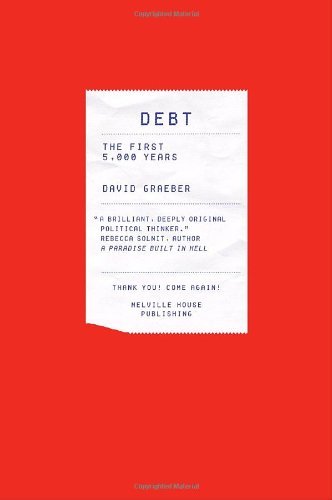
Debt: The First 5,000 Years by David Graeber will teach you everything you need to know about the history of economics and our financial system. Mind you that this book is a tome, but it is worth it.
Antifragile: Things That Gain from Disorder by Nassim Nicholas Taleb revealed the nature of self-healing systems that benefits from shocks and damage but only up to a point. This is unlike robustness. Human muscle is antifragile because it gets stronger with micro-injuries from resistance training. The stock market is also antifragile, but government intervention can actually cause more damage. Read more to learn why.
Who Gets What — and Why: The New Economics of Matchmaking and Market Design by Alvin E. Roth goes deep into market and matchmaking. You will learn a lot of lessons about the market and economy in general.
If you have any book recommendations for me, please let me know!


